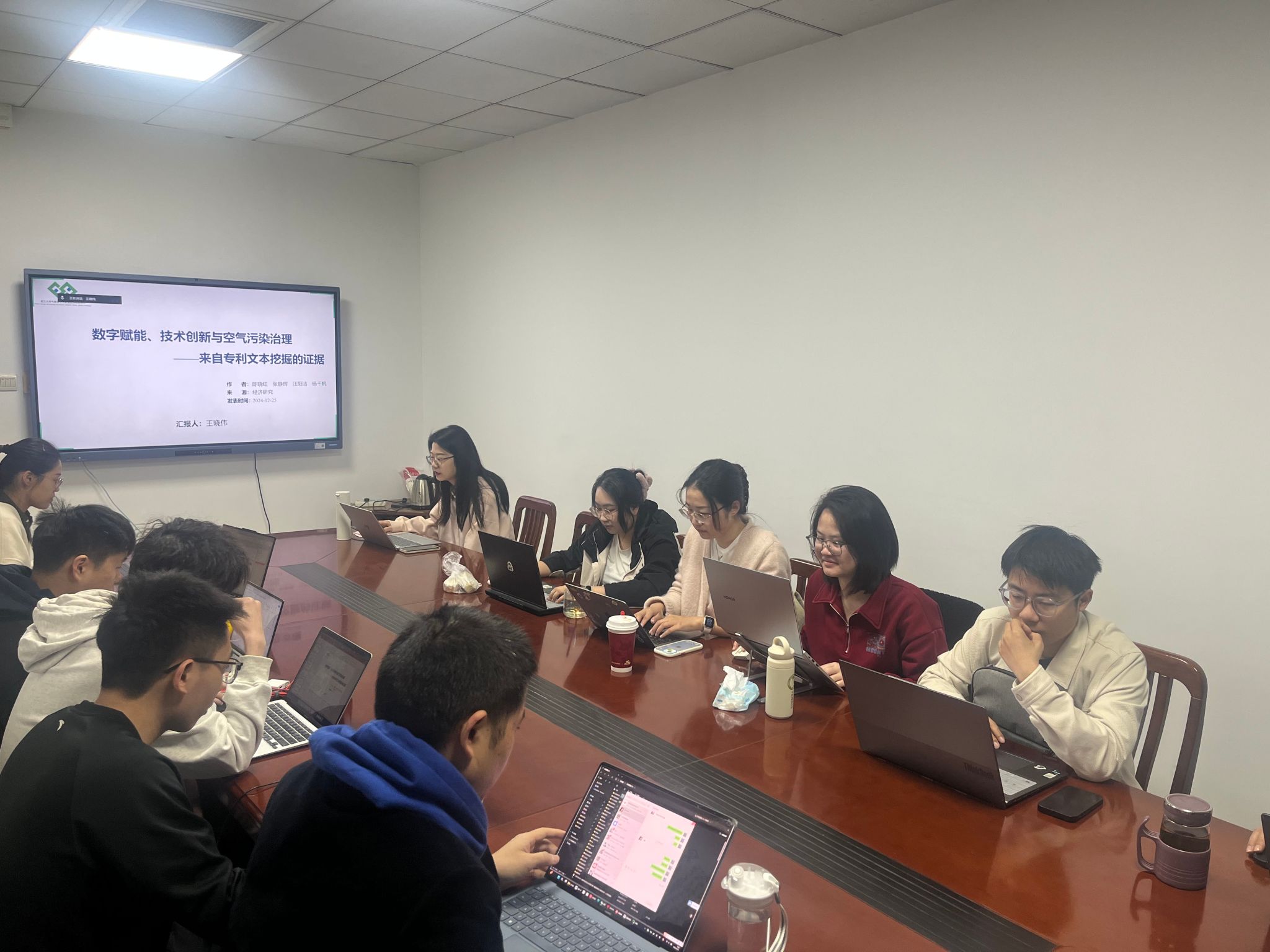时间:2024年3月22(周六)9:00
地点:气候变化与能源经济研究中心会议室
Paper1:王晓伟 数字赋能、技术创新与空气污染治理——来自专利文本挖掘的证据
摘要:数字技术的快速发展及其应用场景的多元化极大改变了传统经济治理模式,但这种技术创新的环境效应尚不明晰。本文利用文本挖掘分析技术,构建了精细化的全国数字技术专利数据,系统研究了数字技术创新对我国环境空气质量的影响、作用渠道及其异质性效应。研究发现:数字技术创新显著降低了我国空气污染水平,尤其体现在人工智能、大数据和 5G 通信等数字技术的应用上。测算表明,数字技术专利增长使得全国PM2.5浓度年均降低 1.013µg/m3,减少了约 166 亿元统计生命价值的损失。机制分析发现,数字技术创新通过绿色创新端的技术效应和生产管理端的治理效应提高了工业企业的空气污染治理成效。进一步分析表明,数字技术赋能效果在不同技术类别、区域和企业类型特征的情况下存在显著差异。本文结论对数字技术有重点、分类别地赋能空气污染治理,完善落实精准化差异化管控措施,协同推动环境高水平保护和经济高质量发展具有重要政策启示。
Paper2:余文珺 Collateral damage: The environmental consequences of
US sanctions
摘要: This study examines the impact of US sanctions on environmental quality of target countries during the period 1995–2022. Using DID method and an event study approach, we find a significant detrimental impact of US sanctions on environmental health. Notably, these sanctions lead to deteriorating air quality, compromised drinking water safety, elevated levels of heavy metals, and worsened waste management. In addition, we show that the adverse effect of sanctions on environmental health i) is greater for multilateral sanctions than unilateral sanctions; ii) is more pronounced when targeting a single country compared to multiple targets, iii) is primarily driven by economic sanctions (trade and financial sanctions), iv) increases with the severity of sanctions, and v) decreases over time, but does not fully dissipate until 9.7 years later. We also identify two primary mechanisms: increased natural resources dependency of the economy, and reduced urgency of environmental sector in public policy.
